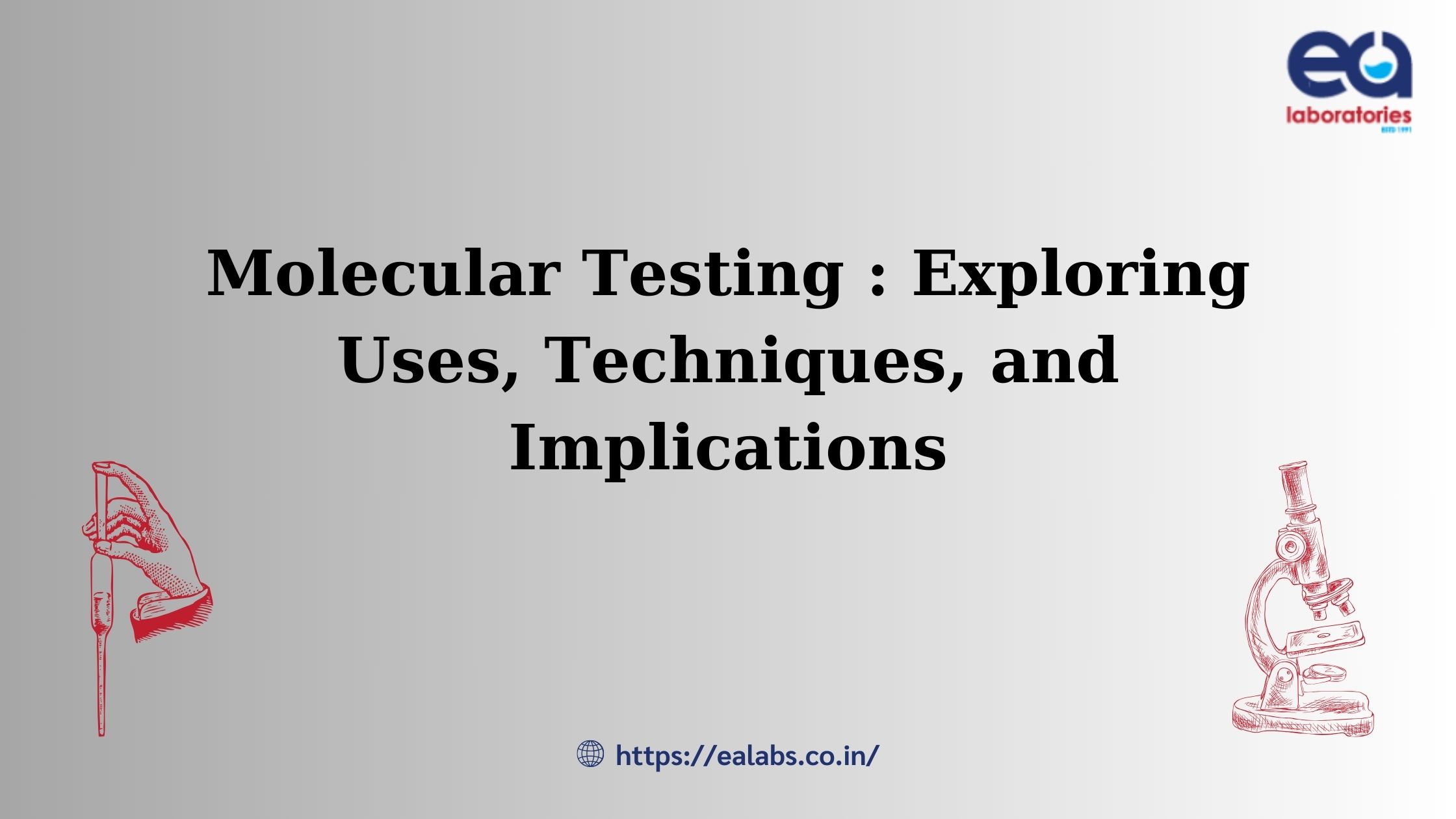Introduction:
In the dynamic landscape of modern healthcare, molecular testing has emerged as a pivotal tool, revolutionising diagnostics, treatment decisions, and our understanding of various medical conditions. This comprehensive exploration aims to unravel the uses, techniques, and implications of molecular testing, shedding light on its multifaceted role in the realm of medicine.
Understanding Molecular Testing:
Molecular testing involves the analysis of biological molecules at the molecular level, allowing for precise insights into genetic, genomic, and proteomic information. The information derived from these tests holds immense value in tailoring medical interventions, predicting disease risks, and personalising treatment plans.
Genetic Testing:
One of the primary applications of molecular testing is in the realm of genetic analysis. Genetic tests delve into an individual’s DNA to identify variations, mutations, or markers associated with genetic disorders, hereditary conditions, or susceptibility to certain diseases. This information is invaluable for both diagnostic purposes and in guiding preventive measures.
Diagnostic Applications:
Molecular testing plays a crucial role in disease diagnosis, offering high sensitivity and specificity. From identifying infectious agents, such as viruses and bacteria, to detecting specific genetic mutations linked to cancer, these tests empower healthcare professionals with precise diagnostic tools, enabling targeted and effective treatments.
Pharmacogenomics:
Molecular testing is instrumental in the field of pharmacogenomics, where genetic variations are analysed to predict an individual’s response to specific medications. This personalised approach to drug therapy enhances treatment outcomes, minimises adverse reactions, and optimises medication regimens based on an individual’s genetic makeup.
Cancer Genomics:
In oncology, molecular testing has become integral for understanding the genetic makeup of tumours. This information guides treatment decisions, helping oncologists choose therapies that target specific genetic abnormalities driving cancer growth. Molecular testing in cancer has significantly contributed to the era of precision medicine.
Technological Advancements:
Advancements in technology, particularly in DNA sequencing and other molecular analysis techniques, have propelled the field of molecular testing forward. Next-generation sequencing (NGS) and polymerase chain reaction (PCR) are among the cutting-edge technologies that enable the rapid and accurate analysis of genetic material, opening new frontiers in medical research and diagnostics.
Implications for Precision Medicine:
The advent of molecular testing has paved the way for precision medicine, an approach that tailors medical care to the individual characteristics of each patient. By considering genetic and molecular information, healthcare providers can develop personalised treatment plans that are more effective and less likely to cause adverse effects.
Challenges and Ethical Considerations:
While molecular testing holds immense promise, it is not without challenges. Issues related to privacy, the interpretation of complex genetic data, and the potential for psychological impact pose ethical considerations. Striking a balance between harnessing the benefits of molecular testing and addressing ethical concerns is a critical aspect of its integration into mainstream healthcare.
Conclusion:
In conclusion, molecular testing stands at the forefront of medical innovation, offering a transformative approach to diagnostics, treatment, and our understanding of human health. From unravelling the intricacies of the human genome to guiding targeted cancer therapies, the applications of molecular testing are diverse and impactful. As technology continues to advance and our knowledge of molecular biology deepens, the role of molecular testing in shaping the future of healthcare is poised to expand, bringing about a new era of precision and personalised medicine.





Leave a Reply